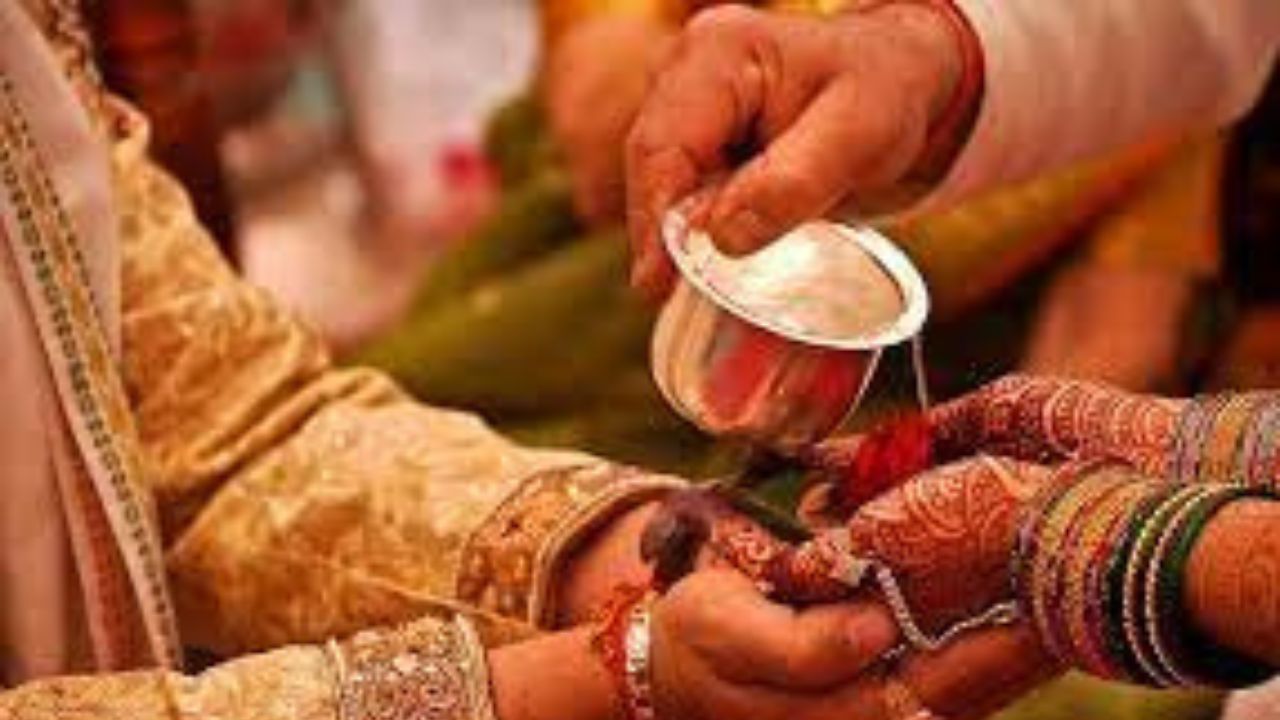Kapu wedding

The Kapu community is a prominent community in the southern Indian state of Andhra Pradesh. Kapu weddings are elaborate affairs that involve a number of customs and traditions. Here are some of the key features of a Kapu wedding:
- Engagement ceremony: The wedding preparations begin with the engagement ceremony, where the families of the bride and groom exchange gifts and formally agree to the marriage.
- Pre-wedding rituals: The Kapu wedding involves a number of pre-wedding rituals such as Mangala Snanam, Kashi Yatra, and Paalikinthalu.
- Kanyadaanam: The bride’s father performs the Kanyadaanam, where he gives away his daughter to the groom, symbolizing the transfer of responsibility and care from the father to the husband.
- Jeelakarra Bellam: The bride and groom exchange a paste made of cumin and jaggery, called Jeelakarra Bellam, as a symbol of their commitment and togetherness.
- Mangalsutra: The groom ties a sacred thread or Mangalsutra around the bride’s neck, symbolizing their union.
- Saptapadi: The bride and groom take seven vows or Saptapadi around the sacred fire, with each vow representing a promise that they make to each other.
- Kanyadaanam: The bride’s father performs the Kanyadaanam, where he gives away his daughter to the groom, symbolizing the transfer of responsibility and care from the father to the husband.
- Wedding feast: The Kapu wedding features a lavish feast or Bhojanam, with a variety of traditional dishes and delicacies.
- Post-wedding rituals: The Kapu wedding concludes with a number of post-wedding rituals such as Grihapravesham and Sthaalipaakam.
Overall, the Kapu wedding is a grand and colorful affair, marked by a number of unique customs and traditions. The wedding ceremony is designed to celebrate the union of two families and to create a strong and lasting bond between the bride and groom.
Specific Content Keywords : Kapu Wedding,Telugu Kapu Wedding,Andhra Pradesh Wedding,Telugu Marriage Traditions,Pre-wedding Rituals,Nischitartham (Engagement),Pellikuthuru (Bridal Shower),Snathakam (Thread Ceremony),Mangala Snaanam (Sacred Bath),Ganesh Puja,Kashi Yatra,Mehndi Ceremony,Haldi Ceremony,Gauri Puja,Kanyadaan,Muhurtham (Auspicious Time),Mangalsutra Ceremony,Taalambraalu (Exchange of Turmeric Rice),Pada Pooja (Respecting Elders’ Feet),Saptapadi (Seven Steps),Tying the Thali (Mangalsutra),Vedic Chants and Mantras,Agni Pradakshina (Circling the Fire),Kankana Bandhana (Tying the Sacred Thread),Kanyadaanam (Giving Away the Bride),Post-wedding Rituals,Grihapravesh (Welcoming the Bride),Reception Celebration,Telugu Kapu Bridal Attire (e.g., Sari or Lehenga),Telugu Kapu Groom’s Traditional Attire (e.g., Dhoti, Kurta),Bridal Jewelry (e.g., Kasulaperu, Vaddanam),Telugu Kapu Wedding Venue Decoration,Telugu Kapu Wedding Invitations,Telugu Kapu Wedding Photography and Videography,Telugu Kapu Wedding Feast (e.g., Andhra Cuisine),Telugu Kapu Wedding Songs and Music,Cultural Performances (e.g., Kuchipudi Dance),Family Blessings and Rituals,Decorative Elements (e.g., Rangoli, Flower Decorations),Telugu Kapu Wedding Gifts and Presents,Astrological Considerations,Telugu Kapu Honeymoon Planning,Telugu Kapu Wedding Games and Entertainment,Telugu Kapu Marriage Customs and Traditions,Emotional Moments and Sentiments,Telugu Kapu Wedding Ceremony Timeline,Auspicious Symbols and Traditions,Telugu Kapu Wedding Rituals and Symbolism,Telugu Kapu Marriage Registration and Legal Formalities,Community Celebrations and Participation.

